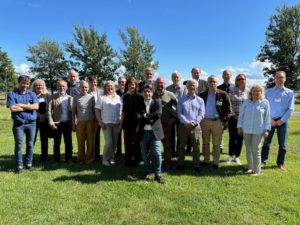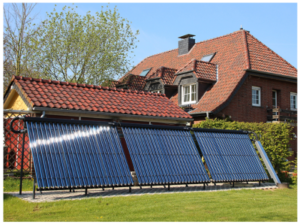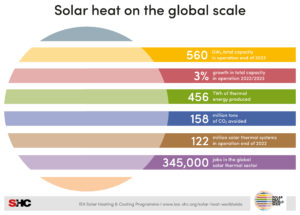

Delay in launch of Croatia’s residential support scheme
 Croatia, a western Balkan country, is one of the most sun-rich nations in the EU, but progress on the solar thermal front has been unsatisfactory in the eyes of Professor Ljubomir Majdandžić, Acting Director of the Environmental Protection and Energy Efficiency Fund (EPEEF). “Our energy development strategy envisions the installation of 0.25 m² of solar collector area per capita until 2020. But it has become clear that this target will not be met,” he said.
Croatia, a western Balkan country, is one of the most sun-rich nations in the EU, but progress on the solar thermal front has been unsatisfactory in the eyes of Professor Ljubomir Majdandžić, Acting Director of the Environmental Protection and Energy Efficiency Fund (EPEEF). “Our energy development strategy envisions the installation of 0.25 m² of solar collector area per capita until 2020. But it has become clear that this target will not be met,” he said. Photo: https://www.turm-krk.de
On behalf of the Ministry of Construction and Physical Planning, EPEEF mainly funds public and residential projects on energy efficiency and renewable energy. Whereas the residential support scheme is still on hold, EPEEF started accepting public sector applications in November 2017. Administrators can submit their energy efficiency or renewable projects until the end of 2020 (for more information, please see the database of incentive programmes). With a budget of Croatian Kuna (HRK) 380 million (around EUR 50.2 million), the programme aims to reduce heating and cooling consumption in public buildings by half.
Residential grant scheme on hold since 2015
In 2015, EPEFF had subsidised as many as 441 single-family housing projects, the professor said, adding that many of those had included solar thermal collectors. At that time, up to 40 % of the solar water heater cost was reimbursed by the government. As the budget turned out to be insufficient to fund all applications, the homeowners who had already taken steps to improve the energy efficiency of their buildings were in the focus of EPEFF.
In 2016 and 2017, the fund did not accept any applications for residential building incentives. Why? “The fund accumulated debt in the previous period. We expect homeowner applications to be re-accepted in 2018. Of course, solar thermal will again be eligible for financing,” Majdandžić said.
EPEEF receives its national funding and allocations from the European Structural and Investment Funds. The Operational Programme Competitiveness and Cohesion 2014-2020 states two specific objectives: Reduce energy consumption in public buildings, a goal supported with EUR 212 million, and Reduce energy consumption in residential buildings (blocks of flats and single-family homes), supported with EUR 100 million.
Organisations mentioned in this article:
European Structural and Investment Funds (ESIFs): http://www.strukturnifondovi.hr
Ministry of Construction and Physical Planning: http://www.mgipu.hr
EPEEF: http://www.fzoeu.hr
Reenova+: http://www.reenovaplus.hr/


